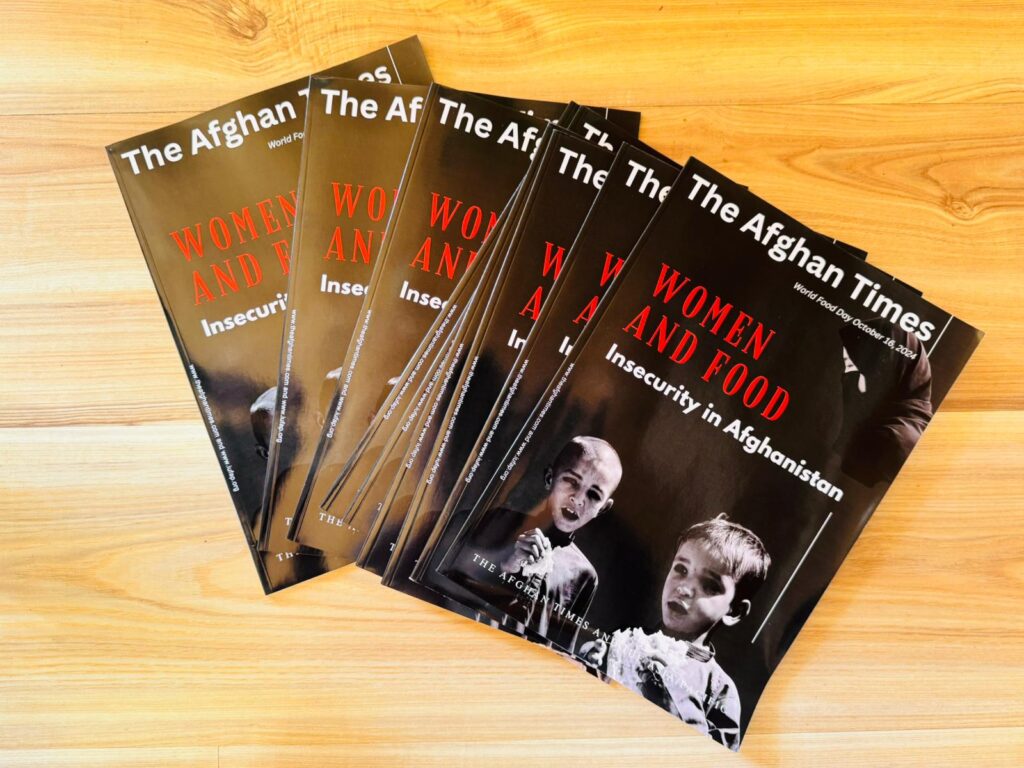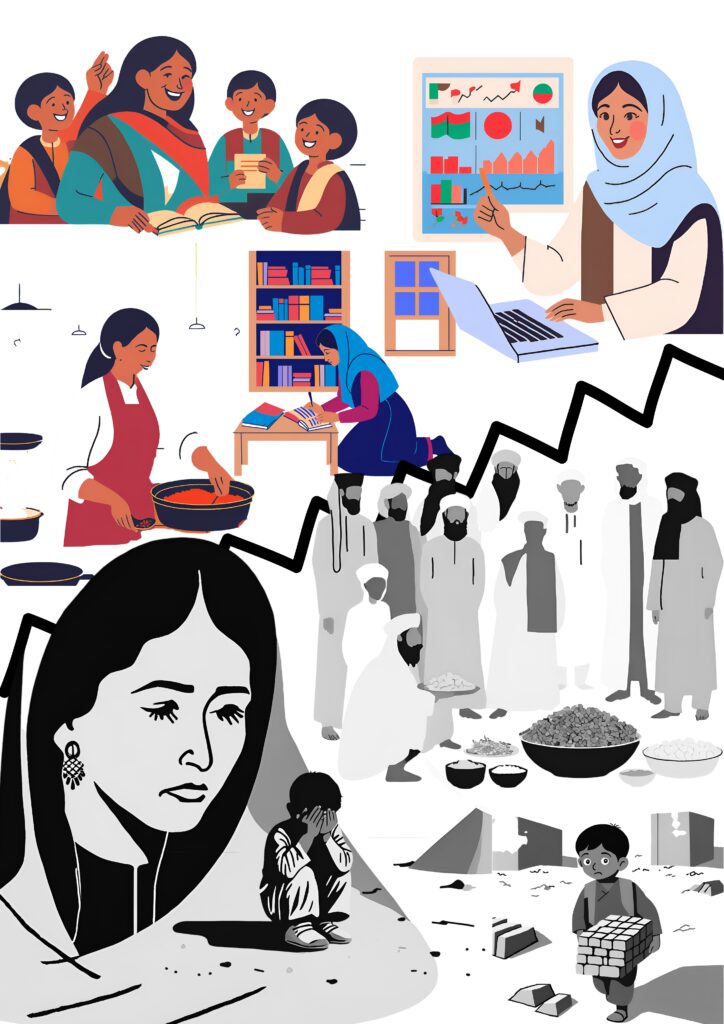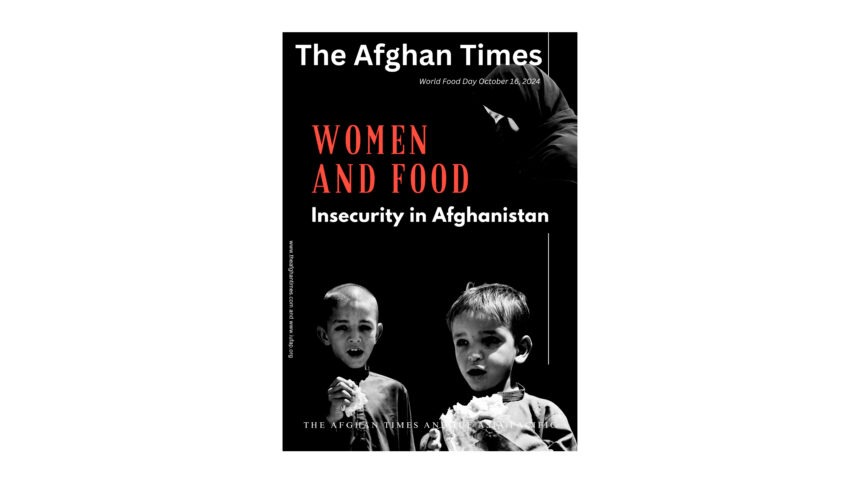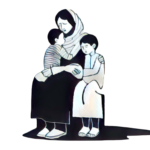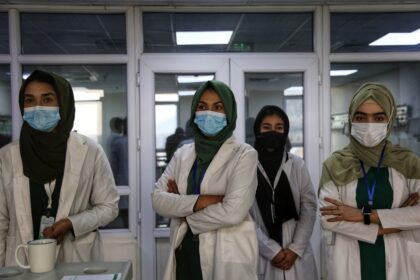For World Food Day, October 16, 2024, the Afghan Times and IUF Asia/Pacific released a report “Women and Food Insecurity in Afghanistan” highlighting the country’s worsening food crisis, deteriorating health conditions, and rising malnutrition, exacerbated by the Taliban’s systematic repression on women and girls’ rights.
The United Nations estimates that 6 million Afghans are now on the brink of starvation, with an additional 28 million in urgent need of humanitarian aid.
The report outlines how Taliban-imposed bans on women’s education, employment, and mobility and even personal expression are undermining agricultural productivity and food security, contributing to an economic collapse marked by high inflation and widespread unemployment. The restrictions on women’s employment and escalating food insecurity are also resulting in a rise in child labour further pushing families into debt and putting children’s futures at extreme risk.
The report emphasizes the vital role women play in achieving food security and calls for the restoration of their rights and full participation in the food system.
“There is no food system in the world that can be resilient, sustainable and fulfill the need for food and nutrition without women. Women must be involved in all stages of the food system from farm to plate, in all different roles and occupations from farming to research and education. It is women who feed the world, and to do so women need jobs, access to education and resources, but most of all access to rights.” Dr. Hidayat Greenfield, IUF Asia/Pacific Regional Secretary.
While international aid agencies continue to provide food assistance, the Taliban’s restrictions on foreign NGOs have forced many organizations to scale back their operations. This has particularly affected women-led households, which often relied on aid as their primary source of food and income.
Despite the ongoing crisis, Afghan communities have shown remarkable resilience and determination through community-led initiatives, education programs, and subsistence farming. Many women have sought alternative ways to contribute to their families and communities, such as starting small businesses from home or engaging in informal work arrangements. Their unwavering commitment is a testament to their strength in the face of adversity.
However, there is an urgent need for governments, organizations, and stakeholders to pressure the Taliban to immediately reverse the bans on women’s education and employment. It is essential to address the restrictive policies imposed by the Taliban, prioritize access to education and skills training to enhance agricultural productivity, ensure access to essential tools, and create opportunities for economic growth in a manner that respects and promotes human rights.
Download the report: “Women and Food Insecurity in Afghanistan”
